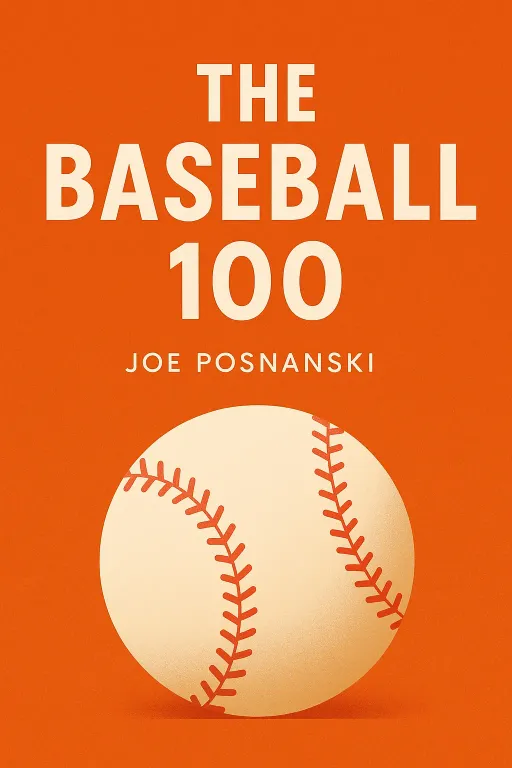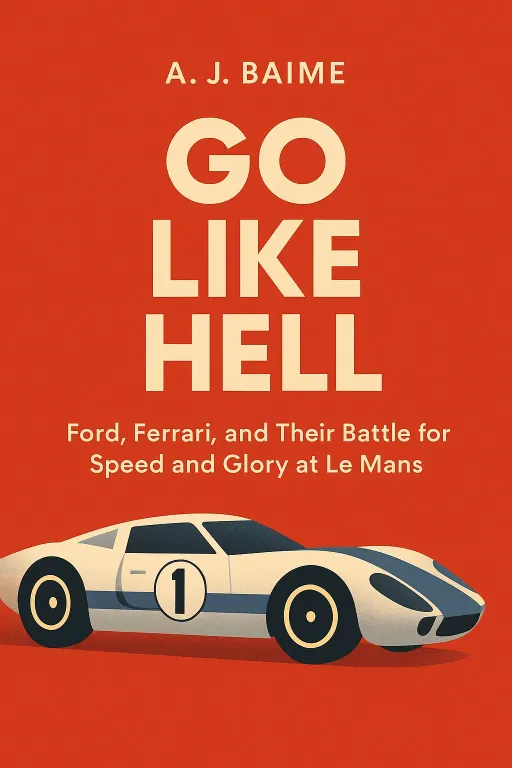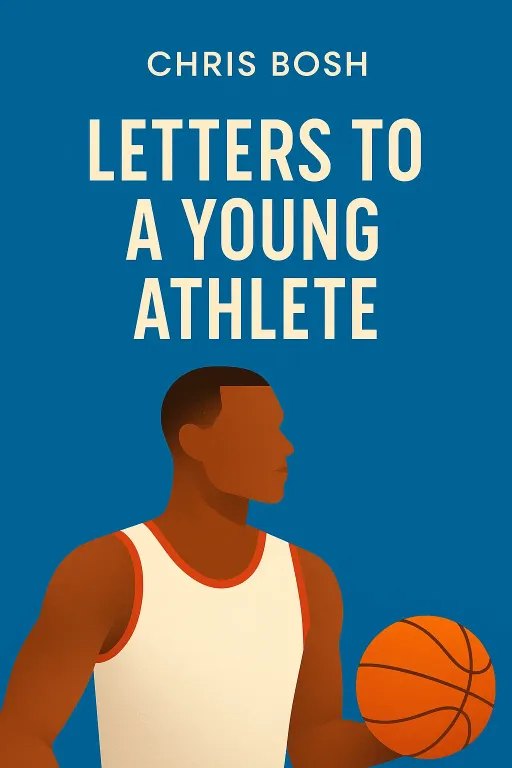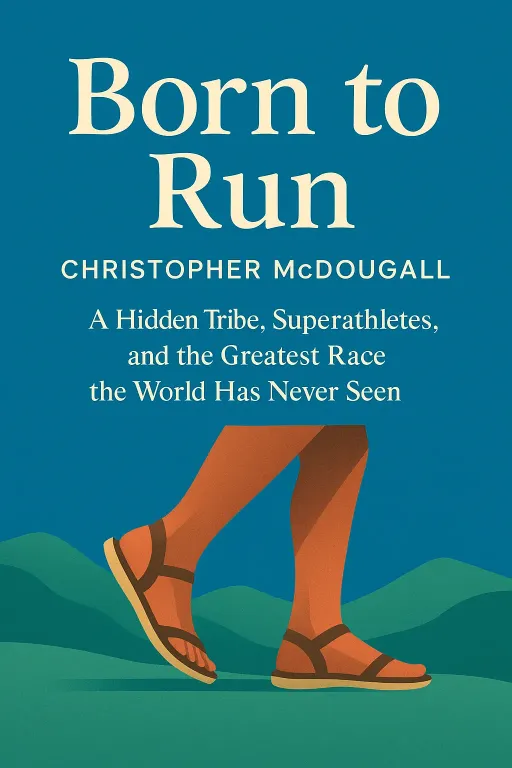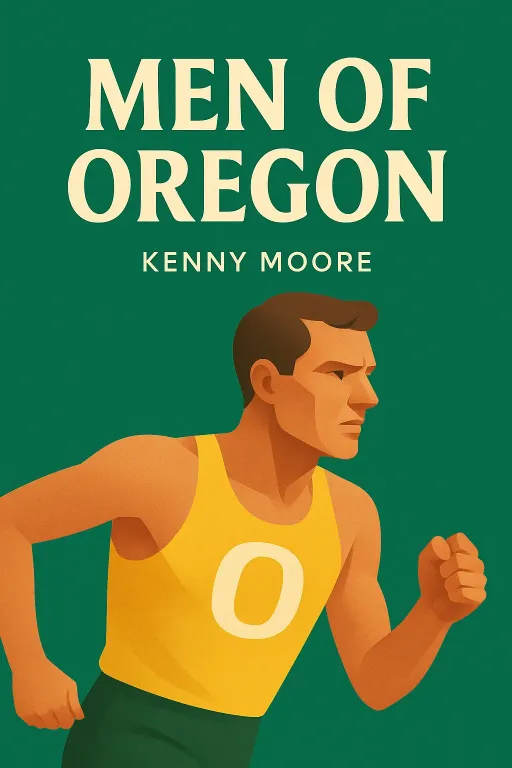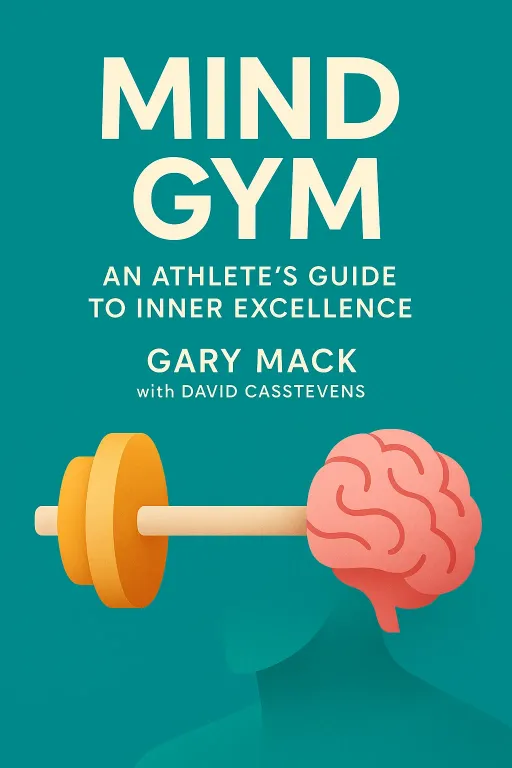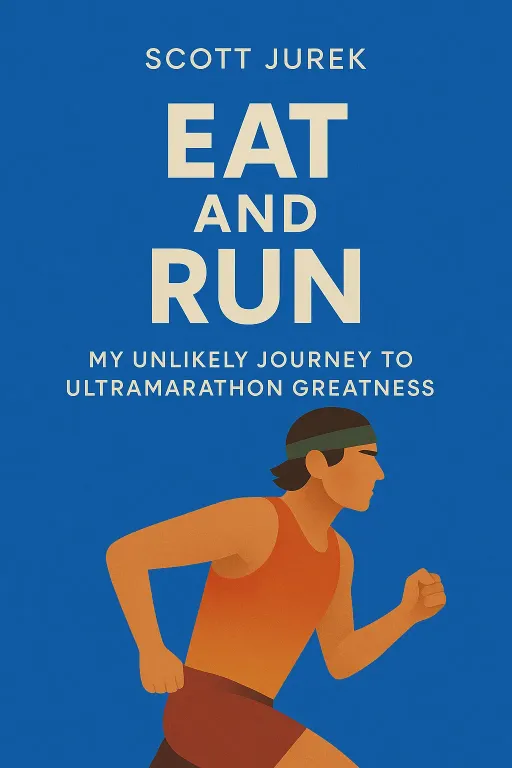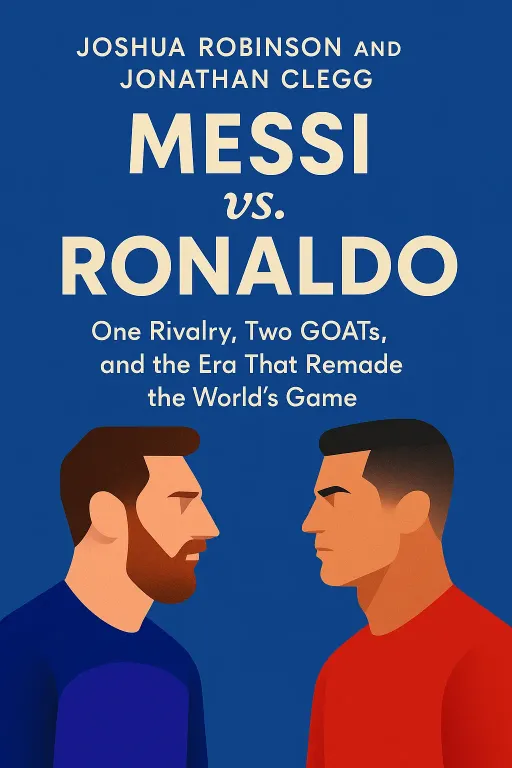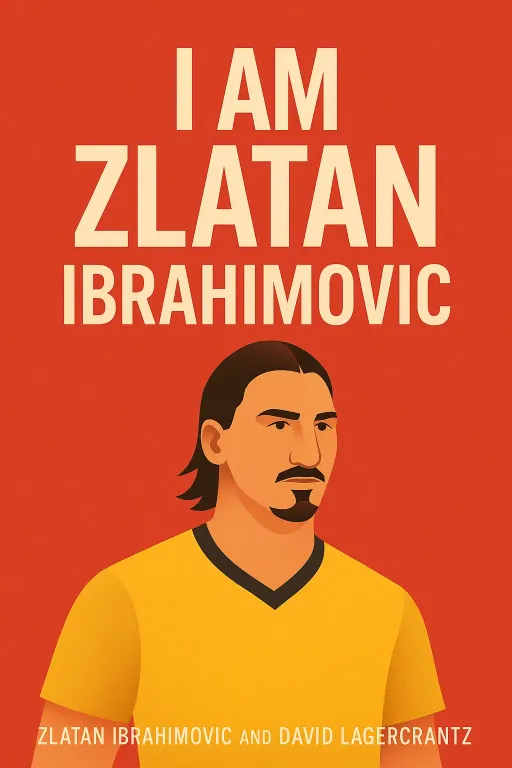
Zlatan: Ferrari in a Fiat World
11 minMy Story On and Off the Field
Golden Hook & Introduction
SECTION
Michael: So, Kevin, before we dive in, give me your one-sentence summary of Zlatan Ibrahimović. Kevin: Oh, that's easy. The guy who talks about himself in the third person and could probably score a goal with a back-heel while filing his taxes. A god-tier athlete with a god complex. Michael: (Laughs) That is the perfect distillation of his public persona. The swagger, the unbelievable goals, the third-person references. But what’s so fascinating about the book we’re discussing today, I Am Zlatan Ibrahimović, is that it reveals the raw, and often painful, machinery behind that persona. Kevin: I’m intrigued. I always assumed it was just a standard sports memoir—you know, a ghost-written victory lap. Michael: That’s the magic of it. It was co-written with David Lagercrantz, a really respected Swedish author. And his specialty isn't sports; it's writing about brilliant, complex eccentrics. He has this incredible skill for capturing a person's authentic voice, and that’s why this book is so widely acclaimed. It feels less like a memoir and more like a confession. Kevin: Ah, so it's not just a highlight reel. It's a character study. That makes sense. You can't have that level of public audacity without a pretty complex inner world. Michael: Exactly. And to understand the character, the Zlatan we see on the world stage, you have to go back to the very beginning, to a rough, forgotten suburb in Sweden called Rosengård.
The Outsider's Rage: Forging an Identity Against the World
SECTION
Kevin: Right, his immigrant background is a huge part of his story. The book dives deep into that, doesn't it? Michael: It’s the absolute foundation. Chapter 2 paints this incredibly vivid, almost cinematic picture of his childhood. It's a world of poverty, of a chaotic family life with his Bosnian father and Croatian mother, and this simmering sense of injustice. There's one story that just perfectly captures it. He gets a BMX bike, his prized possession, and it gets stolen. Kevin: Oh, I can imagine that's heartbreaking for any kid. Michael: It is, but it's the aftermath that defines him. His dad, a tough guy, is furious. He storms off, promising to find the thief and get it back. But he comes back empty-handed. Zlatan sees his father, his hero, as powerless. And in that moment, something shifts. He says, "I decided to become a bicycle thief myself." It wasn't just for transportation; he said it was "more for the kicks." It was about taking back control in a world that felt completely out of his control. Kevin: Wow. So that rebellious streak, that willingness to break the rules, it starts right there. But does the book frame that as a justification? I mean, where's the line between being a product of your environment and just being a "skilled little terror," as he calls himself? Michael: That’s the tension the book lives in. It doesn't necessarily justify it, but it explains it. It paints a picture of an "us against the world" mentality. He talks about his father, who was dealing with the trauma of the Bosnian War, and how the fridge was often completely empty. There’s this one gut-wrenching story where his dad buys him a bed from IKEA but can't afford the delivery fee. Kevin: Oh no. Michael: So his father carries the mattress on his back for miles, all the way home, with little Zlatan trailing behind carrying the bed legs. It’s this mix of neglect and fierce, desperate love. That environment doesn't create a well-adjusted, rule-following kid. It creates a fighter. It creates someone who believes they have to snatch everything they want from the world because nothing will ever be given to them. Kevin: That’s actually a really powerful image. The empty fridge and the IKEA bed. It’s not an excuse, but it’s a powerful context. It makes you wonder if a "nice," well-adjusted Zlatan could have ever become the force of nature he is. Is that kind of rage a necessary ingredient for that specific type of genius? Michael: The book strongly suggests it is. That chip on his shoulder, that feeling of being an outsider, it becomes the fuel for his entire career. And that defiant, "I'll do it my way" attitude that was forged in Rosengård is the very thing that leads to one of the most legendary clashes in modern sports history.
The Ferrari and the Fiat: The Inevitable Clash with Conformity
SECTION
Kevin: Okay, so that rebellious, "I'll do it my way" attitude from his youth... that has to be the root of the legendary clash with Pep Guardiola at Barcelona, right? That story is football folklore. Michael: It's the absolute climax of that theme. In Chapter 1, he describes arriving at Barcelona, which he calls his boyhood dream. At the time, they were the best team in the world. But he immediately feels something is off. He says the stars of the team—Messi, Xavi, Iniesta—acted like "schoolboys." They were quiet, humble, and obedient. And then there's Zlatan. Kevin: The complete opposite. The loud, arrogant guy from the rough neighborhood. Michael: Exactly. And Guardiola, the coach, immediately tries to put him in a box. One of the first things he says to Zlatan is, "Here at Barça, we keep our feet on the ground. So we don’t turn up to training sessions in Ferraris or Porsches." Kevin: Whoa. That’s not a tactical instruction; that's a cultural one. He's telling him to change who he is. Michael: Precisely. And Zlatan tries. He really does. He tries to be the "nice guy," to fit in. But his performance suffers. He feels like he's losing his edge, his identity. And then comes the turning point. Lionel Messi, the golden boy, decides he doesn't want to play on the wing anymore. He wants to play in the center, which was Zlatan's position. Kevin: And what a star player wants, a star player gets, I assume. Michael: Guardiola immediately changes the formation to accommodate Messi. Zlatan is pushed out to the wing, sacrificed. He feels invisible. And this is where one of the most famous quotes from the book comes from. One of Zlatan's friends tells him, "It’s as if Barça had bought a Ferrari and was driving it like a Fiat." Kevin: That is such a perfect analogy. So Barcelona is like this perfectly synchronized, almost robotic system, and Zlatan is this chaotic, brilliant variable they just couldn't compute. Michael: A bug in the system, from Guardiola's perspective. And instead of trying to manage this brilliant, chaotic player, Guardiola just... stops talking to him. For months. He won't look at him, won't acknowledge him. It's a complete psychological freeze-out. Kevin: That’s brutal. That’s worse than yelling. The silence is a weapon. Michael: It drove Zlatan mad. He eventually explodes in the locker room, screaming at Guardiola, "You haven't got any balls! You’re shitting yourself in front of Mourinho. You can go to hell!" After that, the relationship is completely dead. And Zlatan, realizing he's being pushed out, decides to reclaim his identity. He drives his ultra-rare Ferrari Enzo to training and parks it right in front of the door, a massive act of defiance against Guardiola's first rule. Kevin: I love that. It wasn't just being a diva. It was a statement. It was him saying, "You can't turn me into a Fiat. I am a Ferrari." Michael: Exactly. And that defiance, that refusal to be anything other than himself, wasn't just something he did on the pitch. It became his entire brand. And he found the one person in the world who knew exactly how to sell it.
The Art of the Deal: Zlatan, Moggi, and Mino Raiola
SECTION
Kevin: It’s one thing to have that persona, but it’s another to turn it into a global, multi-million dollar brand. That takes a different kind of genius. Michael: It does, and that genius was his agent, the late, legendary Mino Raiola. Chapter 11 tells the story of their first meeting, and it's pure cinema. Zlatan, at this point, is a young star at Ajax. He decides he needs a new agent and is told to meet this guy, Raiola, who is described as being like a "mafioso." Kevin: Sounds like Zlatan's kind of guy. Michael: You'd think so. Zlatan shows up to the meeting at a fancy hotel, dressed head-to-toe in Gucci, driving his Porsche, ready to impress. And in walks Mino Raiola—overweight, wearing jeans and a Nike T-shirt. He sits down, orders enough sushi for a small army, and just starts eating. Kevin: (Laughs) Okay, that’s a power move. Michael: A huge one. Then, between mouthfuls of sushi, Raiola pulls out a piece of paper. It's a list of the top strikers in Italy and their stats—goals and assists. He points to names like Vieri and Shevchenko with incredible numbers. Then he points to Zlatan's name. The stats are pathetic in comparison. Raiola looks at him and says, "You think I’m going to be able to sell you with statistics like these?" Kevin: Oh man, he just completely deflated his ego. Michael: Popped it like a balloon. He then tells Zlatan, "You’re going to sell your cars. You’re going to sell your watches and start training three times as hard. Because your stats are crap." Kevin: Wait, so the agent who is supposed to make him richer tells him to get rid of all his rich-guy stuff? That's completely counterintuitive! Michael: That was Raiola's genius! He understood that Zlatan's value wasn't in the flashy lifestyle. It was in the story. The story of the kid from Rosengård who fought his way to the top. He needed to be the hungry fighter, not the complacent star. Raiola wasn't just selling a footballer; he was building a legend. The "Zlatan" persona—the outsider, the warrior—that was the product. Kevin: So he was essentially monetizing Zlatan's authentic identity, the very thing that got him in trouble with Guardiola. Michael: One hundred percent. He weaponized it. And this played out in his negotiations. There are incredible stories of Raiola's meetings with powerful club directors like Luciano Moggi at Juventus. Moggi was this feared, all-powerful figure in Italian football. Raiola walks into his office for the first time and puts his feet up on Moggi's desk. He created chaos and used his own larger-than-life personality to make Zlatan seem like the only sane one in the room. Kevin: That’s brilliant. It’s like a form of psychological warfare. He’s not just negotiating a contract; he's directing a movie, and Zlatan is the star. It connects everything back to his roots. The fight that started on the streets of Rosengård just moved into the boardrooms of the biggest clubs in the world. Michael: And it worked. He made Zlatan one of the highest-paid and most sought-after players in history, all while ensuring he never lost that edge, that fire that made him who he is.
Synthesis & Takeaways
SECTION
Kevin: So, after all this, what's the real story of Zlatan? Is he a misunderstood genius, a calculated brand, or just a guy from a tough neighborhood who never stopped fighting? Michael: I think the incredible thing about I Am Zlatan is that it shows he's all three, and that those three things are completely inseparable. His genius on the field is fueled by the rage from his childhood. His global brand is built on the authentic story of his fight. He took the very things society marginalized him for—his immigrant background, his defiance, his perceived arrogance—and he turned them into his greatest strengths. Kevin: That’s a powerful idea. It’s not about changing yourself to fit the world, but forcing the world to make room for you as you are. Michael: Exactly. The book is a testament to owning your identity, especially when it doesn't fit the neat little boxes people want to put you in. It’s a story about conflict, but ultimately, it’s about the triumph of a singular, unapologetic personality. Kevin: It really makes you think. In a world that constantly asks us to conform, to be more agreeable, to fit in... Michael: It leaves you with a fascinating question: In what parts of our own lives are we driving a Ferrari like it's a Fiat? Kevin: A question to ponder. This is Aibrary, signing off.
